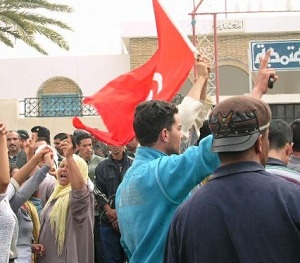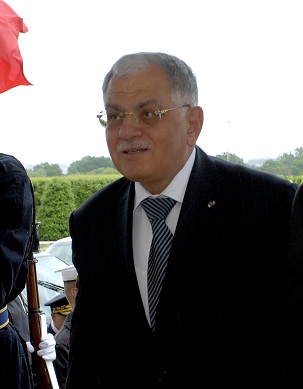|
Tunisia Politics | Society Little faith in Tunisian opposition
The US Embassy cable, released by Wikileaks yesterday, reflects a period of uncertainty in Tunisia. US Ambassador William Hudson was struck by "an increasing number of Tunisians ... talking about succession and the end of the Ben Ali era," calling the situation "remarkable."
The current interim government has promised to organise election within six months - not 60 days as the constitution foresees. Several opposition candidates are already emerging, although strong candidates such as the returning exiled centre-left opposition leader Moncef Marzouki could be barred from standing because the constitution demands candidates to be a member of a party with at least one member in parliament. The 2006 US cable foresees several leading RCD members to be the most likely to win a post-Ben Ali presidential election, carefully planned by interim leaders Ghannouchi and Mebazaa. The principal RCD candidates, according to the US analysis, included Minister of State, Special Advisor to the President and Official Spokesman Abdelaziz Ben Dhia, Minister of Social Affairs Abroad Ali Chaouch, PM Ghannouchi, Minister of Defense Kamel Morjane and First Lady Leila Ben Ali. Currently, the very unpopular ex-First Lady has fled the country with 1.5 tonnes of gold from the Central Bank, disqualifying her from the power struggle. Strongman Ben Dhia seems to personally attached to ex-President Ben Ali and too old (75 years old) to become a credible RCD candidate. Mr Chaouch, as a former Interior Minister, is widely seen as too attached to the dictatorship and is strongly unpopular. The likeliest current candidates for the RCD presidential candidacy among the US list from 2006 seem to PM Ghannouchi and Minister Morjane. Mr Ghannouchi, while currently in a powerful position, is quickly losing his popularity and credibility as the popular protest now are directed towards him and as he is failing to provide the country with a stable government. The rising star among RCD cadres seems to be ex-diplomat and former Defence Minister Morjane, who was appointed Foreign Minister by the current Ghannouchi interim government. The 63-year-old has so far avoided positions that connect him to the repressive machinery of ex-President Ben Ali. Foreign Minister Morjane currently seems to be the most likely RCD candidate in an upcoming presidential poll. The remarkable 2006 analysis by US Ambassador Hudson still has a surprising validity as Tunisia struggles to find credible leaders in the post-Ben Ali era. The open question however is whether the protesters and the opposition will have enough strength to prevent Prime Minister Ghannouchi from securing the RCD and old elite from maintaining their grip on power. By staff writer © afrol News - Create an e-mail alert for Tunisia news - Create an e-mail alert for Politics news - Create an e-mail alert for Society news
On the Afrol News front page now
|
front page
| news
| countries
| archive
| currencies
| news alerts login
| about afrol News
| contact
| advertise
| español
©
afrol News.
Reproducing or buying afrol News' articles.
You can contact us at mail@afrol.com









